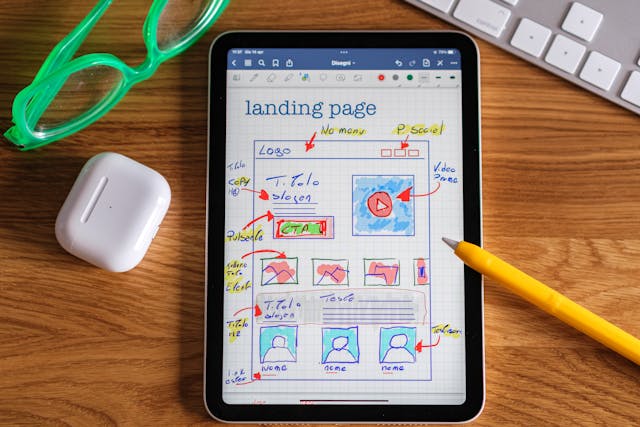
The Future of Technology: What to Expect in the Next Decade
Introduction
As we stand at the brink of a new decade, the pace of technological advancement shows no signs of slowing down. From artificial intelligence (AI) and quantum computing to biotechnology and the Internet of Things (IoT), emerging technologies promise to reshape our world in ways that were once the stuff of science fiction. In this blog, we'll explore some of the most exciting technological trends on the horizon and how they are expected to influence the future of our society, economy, and daily lives.
Artificial Intelligence and Machine Learning
Artificial Intelligence (AI) has already made significant strides, but its future potential is nothing short of revolutionary. AI is poised to become even more integrated into our lives, driving innovation across various sectors.
- Autonomous Systems: Autonomous vehicles, drones, and robots will become more commonplace, transforming transportation, logistics, and even household tasks. Self-driving cars could reduce traffic accidents and emissions, while AI-powered drones may revolutionize delivery services.
- Personalized Healthcare: AI's ability to analyze vast amounts of data quickly will lead to more personalized and precise healthcare. AI-driven diagnostics, treatment recommendations, and even robotic surgeries will become more accurate, improving patient outcomes.
- Smart Cities: AI will play a central role in the development of smart cities, where interconnected systems optimize everything from traffic flow to energy consumption, making urban living more efficient and sustainable.
Quantum Computing
Quantum computing is another technology with the potential to change the world fundamentally. Unlike traditional computers that use bits (0s and 1s), quantum computers use qubits, which can exist in multiple states simultaneously, allowing for exponentially faster processing.
- Breakthroughs in Science: Quantum computers could solve complex problems that are currently intractable for classical computers, such as simulating molecular interactions for drug discovery or optimizing complex supply chains.
- Cryptography: Quantum computing could revolutionize cryptography, both in breaking current encryption methods and in creating virtually unbreakable codes, leading to new standards in cybersecurity.
- Artificial Intelligence: Quantum computing will supercharge AI, enabling more sophisticated algorithms and faster data processing, further accelerating advancements in AI applications.
The Internet of Things (IoT) and 5G
The Internet of Things (IoT) refers to the growing network of interconnected devices that communicate with each other over the internet. The rollout of 5G technology will significantly enhance IoT by providing faster data transfer rates, lower latency, and the ability to connect more devices simultaneously.
- Smart Homes: IoT will continue to enhance the concept of smart homes, where devices like thermostats, lighting, security systems, and kitchen appliances are interconnected and controlled remotely. With 5G, these systems will become even more responsive and integrated.
- Healthcare: Wearable devices and smart implants will monitor health in real-time, providing continuous data to healthcare providers and enabling proactive health management. This will lead to earlier diagnosis and better chronic disease management.
- Industrial IoT: Factories and supply chains will become smarter and more efficient with IoT, as sensors monitor machinery and inventory in real-time, reducing downtime and optimizing operations.
Biotechnology and Human Augmentation
Biotechnology is advancing at a rapid pace, with potential implications for health, longevity, and even human capabilities. CRISPR and other gene-editing technologies are pushing the boundaries of what's possible in medicine and biology.
- Gene Editing: CRISPR technology will likely see broader applications in curing genetic diseases, enhancing crops, and even combating climate change. Ethical considerations will be paramount as we navigate the implications of editing the genetic code of living organisms.
- Human Augmentation: Advances in biotechnology, coupled with AI and robotics, will lead to human augmentation technologies, such as brain-computer interfaces and prosthetics that can be controlled directly by the mind. This could enhance physical and cognitive abilities, leading to new possibilities for human potential.
- Longevity Research: Research into extending human lifespan will continue to progress, with the potential for breakthroughs in slowing or even reversing the aging process. This could lead to a significant shift in how we think about health, work, and retirement.
Sustainability and Green Technology
As the world grapples with the effects of climate change, technology will play a critical role in developing sustainable solutions. The next decade will likely see significant advancements in green technology.
- Renewable Energy: Advances in solar, wind, and battery technology will make renewable energy more efficient and cost-effective, leading to wider adoption and a reduction in reliance on fossil fuels.
- Carbon Capture: Emerging technologies will enable more efficient carbon capture and storage, helping to reduce greenhouse gas emissions from industrial processes and energy production.
- Sustainable Agriculture: Precision agriculture, powered by IoT and AI, will optimize resource use in farming, leading to higher yields with lower environmental impact. Vertical farming and lab-grown meat are also likely to become more prevalent, reducing the ecological footprint of food production.
Ethical Considerations and the Future of Work
As technology advances, it raises important ethical questions and concerns about the future of work.
- Data Privacy: With the increasing collection and use of personal data by AI, IoT, and other technologies, data privacy will become a critical issue. Regulations and technologies that protect user data will be essential to maintain trust in these systems.
- Job Displacement: Automation and AI may lead to the displacement of certain jobs, particularly in industries like manufacturing, transportation, and customer service. However, new jobs will also be created in tech-driven sectors. Education and reskilling programs will be crucial to prepare the workforce for these changes.
- Digital Divide: As technology becomes more advanced, there is a risk of deepening the digital divide between those who have access to these technologies and those who do not. Ensuring equitable access to technology will be essential for creating a fair and inclusive future.
Conclusion
The future of technology is both exciting and challenging. While new technologies promise to solve some of the world's most pressing problems, they also raise important questions about ethics, privacy, and the impact on society. As we move into the next decade, it will be crucial to balance innovation with responsibility, ensuring that the benefits of technology are shared by all.
The next decade will undoubtedly bring about changes that are difficult to predict, but one thing is certain: technology will continue to shape our world in profound ways. By staying informed and proactive, we can harness the power of technology to create a better future for everyone.






(0) Comment